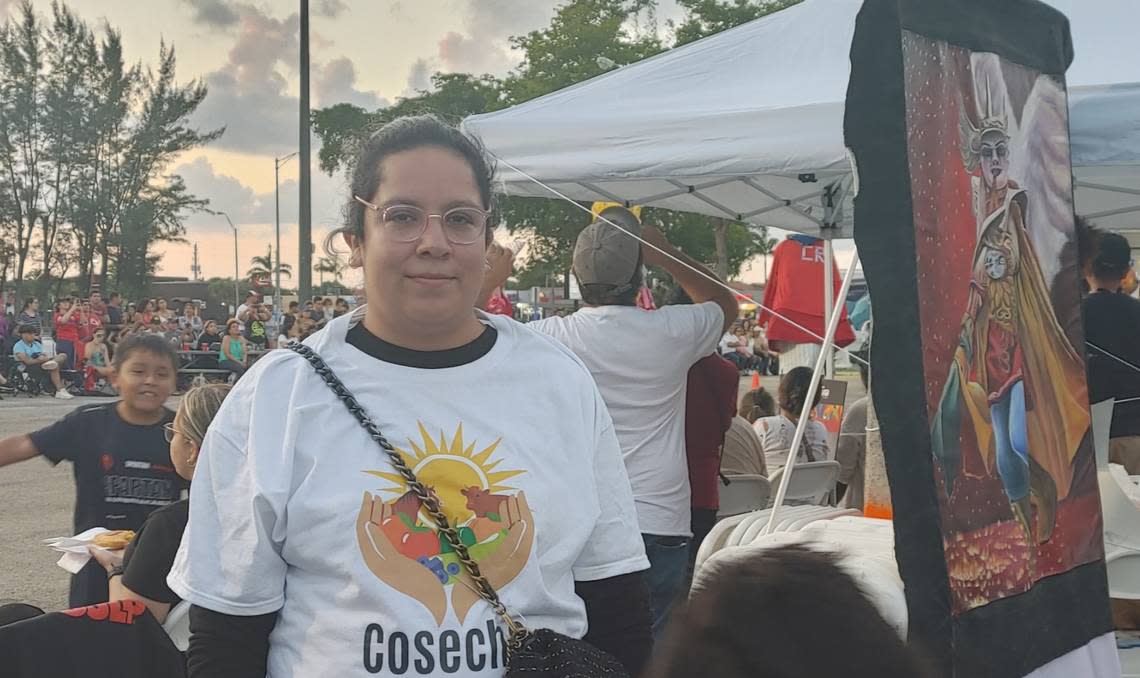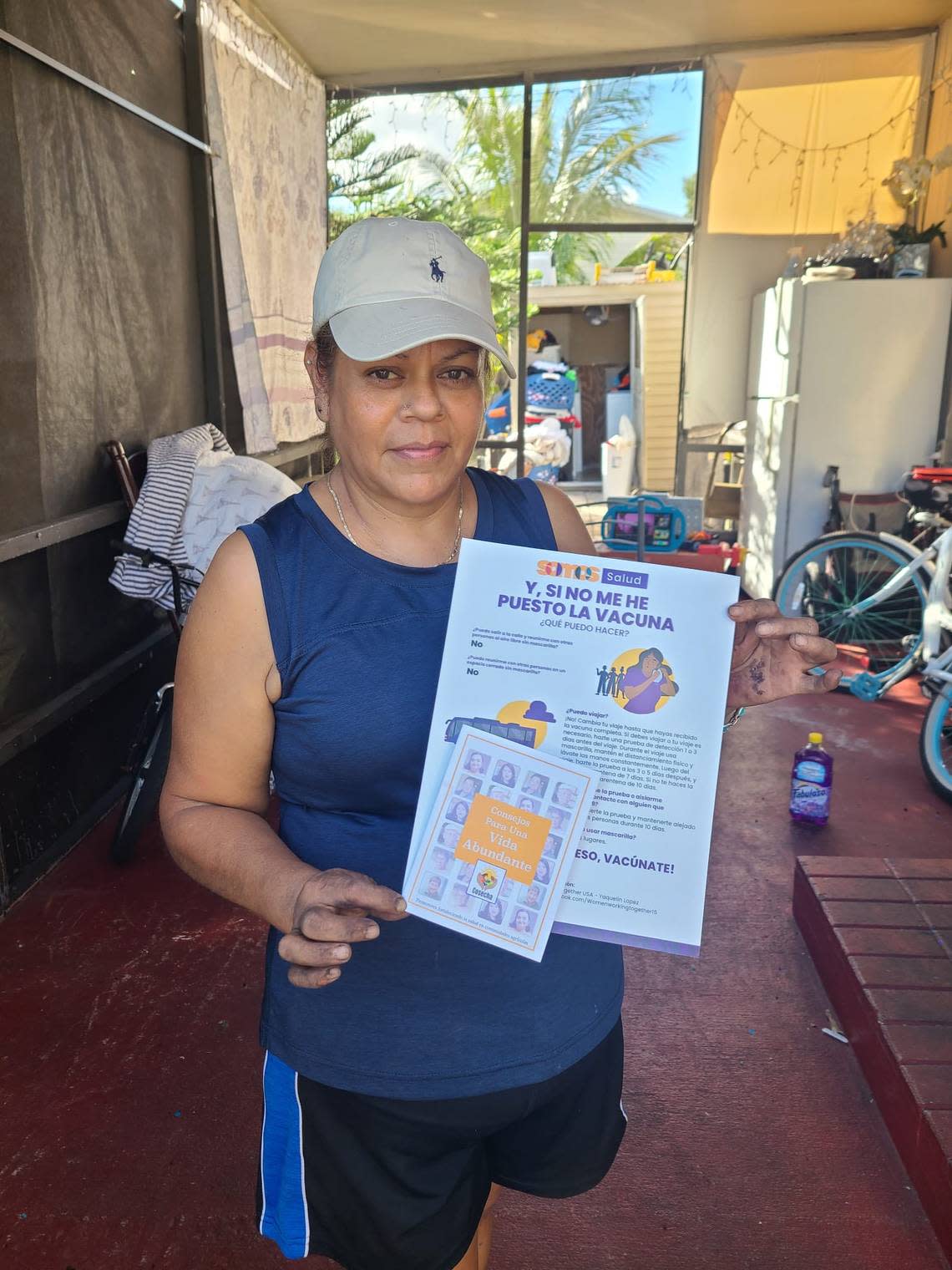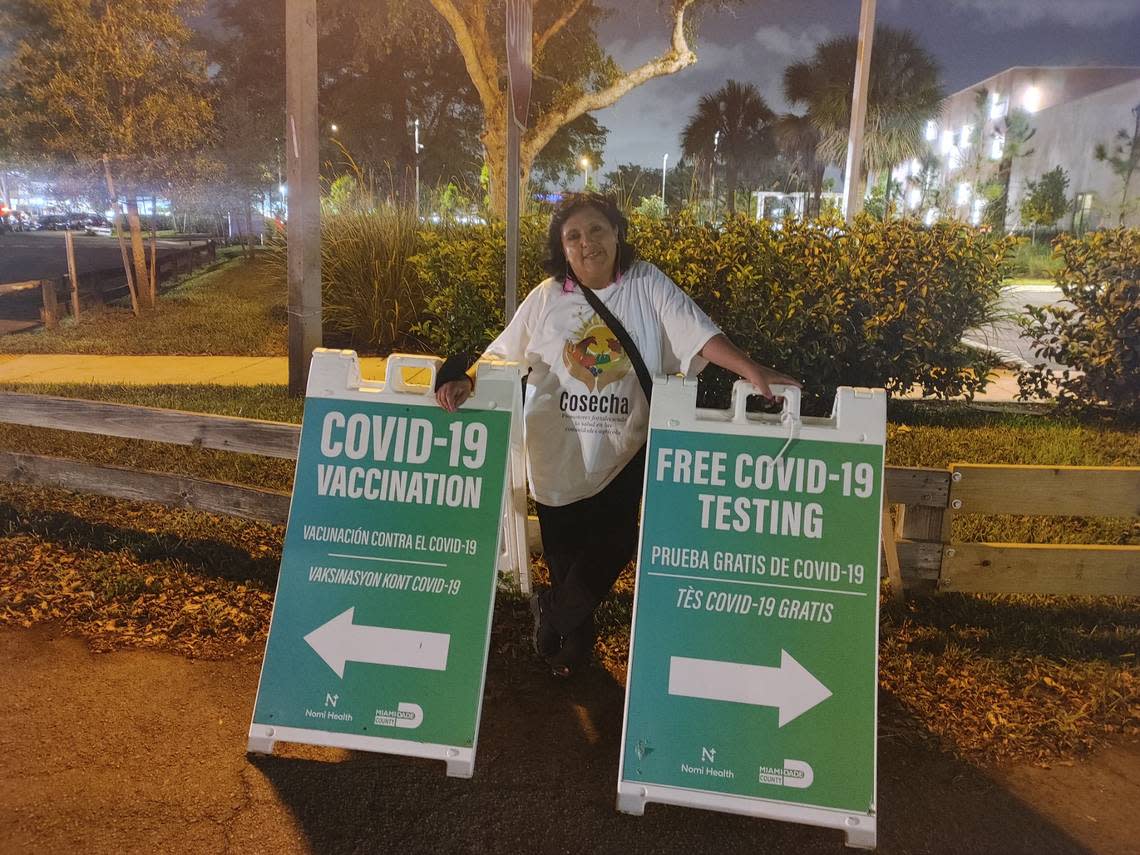Why migrant workers in Florida weren’t getting COVID vaccines, and what happened next
Migrant workers in Florida had the opportunity to get their COVID-19 shots during a year-long health campaign.
Alianza Americas, a network of more than 50 migrant-led organizations in 18 states, and community partners across Florida distributed more than 4,500 COVID vaccines and boosters to migrant worker communities. Women Working Together and WeCount!, two organizations based in Miami-Dade, participated in the initiative.
The Somos Salud Cosecha project, which ran from August 2021 to July, aimed to address health inequities faced by Latino migrants and farm workers. Latinos are 1.9 times more likely to die from COVID than white non-Hispanic people.
Fifty-five percent of the vaccines administered during the project were given to women and 46% were given to people age 30 to 49. After being vaccinated, many shared that they were delayed in getting the shot due to disinformation, fear of side effects and lack of access due to work schedule and transportation.
Early into the COVID-19 pandemic, Alianza Americas jumped into action after noticing the lack of culturally appropriate, Spanish-language information, said Helena Olea, associate director of programs. The network received a U.S. Centers for Disease Control and Prevention grant that helped start a Spanish public health campaign and train community healthcare workers.
Last year, the Health Resources and Services Administration funded the Cosecha project, she said. The organization identified that Florida’s rural population, particularly migrant farm workers, didn’t have access to COVID-19 vaccines. That’s why Alianza Americas drew on its previous experience and helped train community health workers.
In many cases, community health workers are these populations’ only source of health information, she said. They meet community members at places they frequent — on the street or in the grocery store — and build trust.

For Olea, the digital gap was part of the problem. Many had phones but didn’t know how to use apps to register for vaccine appointments. Others feared signing up for a shot — or any type of public service or assistance — out of fear of immigration enforcement.
“Many viewed that there was even a risk in seeking the vaccine or making an appointment to the vaccine,” Olea said.
Farm workers were also reluctant to get vaccinated due to their work schedules, Olea said. So the group scheduled vaccine events on evenings and weekends.
“If I’m gonna feel side effects and I’m going to be unable to work, it has to be on a day that is already my free day because I do not have the luxury of missing a day of work,” she said.
Vaccine campaigns in Homestead and Florida City
WeCount!, an organization based in Homestead, joined the Cosecha project in October but previously did COVID outreach programs, membership coordinator Yomaris Toro said. Volunteers wanted to learn why migrant workers were hesitant, so they listened.
Then the group identified places vaccines were available and sent its eight health promoters to churches, community markets and agricultural communities. They frequented popular areas, like Washington Avenue in Homestead, every weekend.
Health promoters took time to explain the purpose of vaccination in a sensitive and personal way, Toro said. They also urged community members to get vaccinated. Vaccines were available without health insurance, and that might not always be the case.

Over the course of the project, the organization made 6,590 contacts in Homestead and 1,073 contacts in Florida City. And that included finding ways to connect to speakers of languages like Mam, a Mayan language in Guatemala and parts of Mexico.
For Toro, the group’s efforts weren’t in vain even if people ultimately chose not to get the shot. Health promoters educated them on their rights to health access and what they should do when they visit clinics.
“The people were very open to have conversations with [health promoters] because they feel that they’re a part of the community,” Toro said. “They know our organization. They believe in our work, and they trust us ... as a pillar in the community.”
Access across South Florida
Farm workers’ labor gets food and products to tables across the U.S., said Yaquelin Lopez, organizer and cofounder of Women Working Together. But many working long hours in Florida weren’t protecting themselves against COVID-19.
Women Working Together joined the Cosecha project in October to present migrant workers in Miami-Dade, Broward and Palm Beach the opportunity to get vaccinated, Lopez said. The organization also targeted migrant caretakers of elderly people.
These jobs, Lopez said, are essential and can’t be done remotely. They made their way to the fields and to homes despite the risk of infection.
“Cosecha is an act of love,” she said in Spanish. “We are a group that arrived to communities understanding their concerns.”
The South Florida-based organization made 2,800 contacts over 55 ZIP codes, said Jonathan Castro, data and support resources manager at Alianza Americas. While most interactions were in Miami-Dade, frequented communities were West Palm Beach, Pompano Beach, Homestead, Miami and Miramar. Health workers provided 1,024 vaccines across 90 ZIP codes.

The initiative came with its challenges, Lopez said. But open conversations free of judgment often quelled their fears.
Community members told group volunteers that they believed the vaccine would sterilize them, she said. They questioned how it was developed so fast and pointed to Florida Gov. Ron DeSantis’ skepticism.
“It was a problematic reality we were seeing against the most vulnerable community, workers in camps,” Lopez said in Spanish.
Lopez said many migrant workers also feared impact to their immigration status. At vaccination sites, they may have been asked for a government ID or insurance. Some even passed on medical treatment when sick with severe cases of COVID.
To address those concerns, Women Working Together walked them through the vaccination process and created WhatsApp chats to communicate directly, even sending messages in languages like Mam, Lopez said.
The vaccine initiative allowed the group to better understand the community’s health needs, Lopez said. Health workers often came across people who had to choose between paying for their housing or their medications.
Future health campaigns are necessary to inform and educate the community, Lopez said. They need to know their rights and learn how to navigate public health systems.
“These are people who are putting in labor for this country,” she said. “We want them to live with dignity and respect.”
